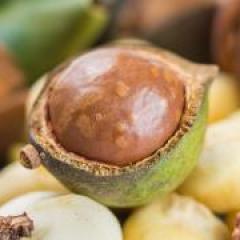Macadamia tree shaking replaces fungicides in eliminating spread of costly nut disease
A University of Queensland scientist is recommending a literal shake-up for Australia's macadamia industry, after finding a chemical-free solution to controlling a devastating disease that causes nuts to drop off prematurely.
Key points:
- Husk spot disease spreads from old tree husks to new green ones
- The pathogen is only found in Australia and costs the macadamia industry around $10 million a year
- Researchers discovered that mechanically shaking the trees removes the husks and the risk of infection
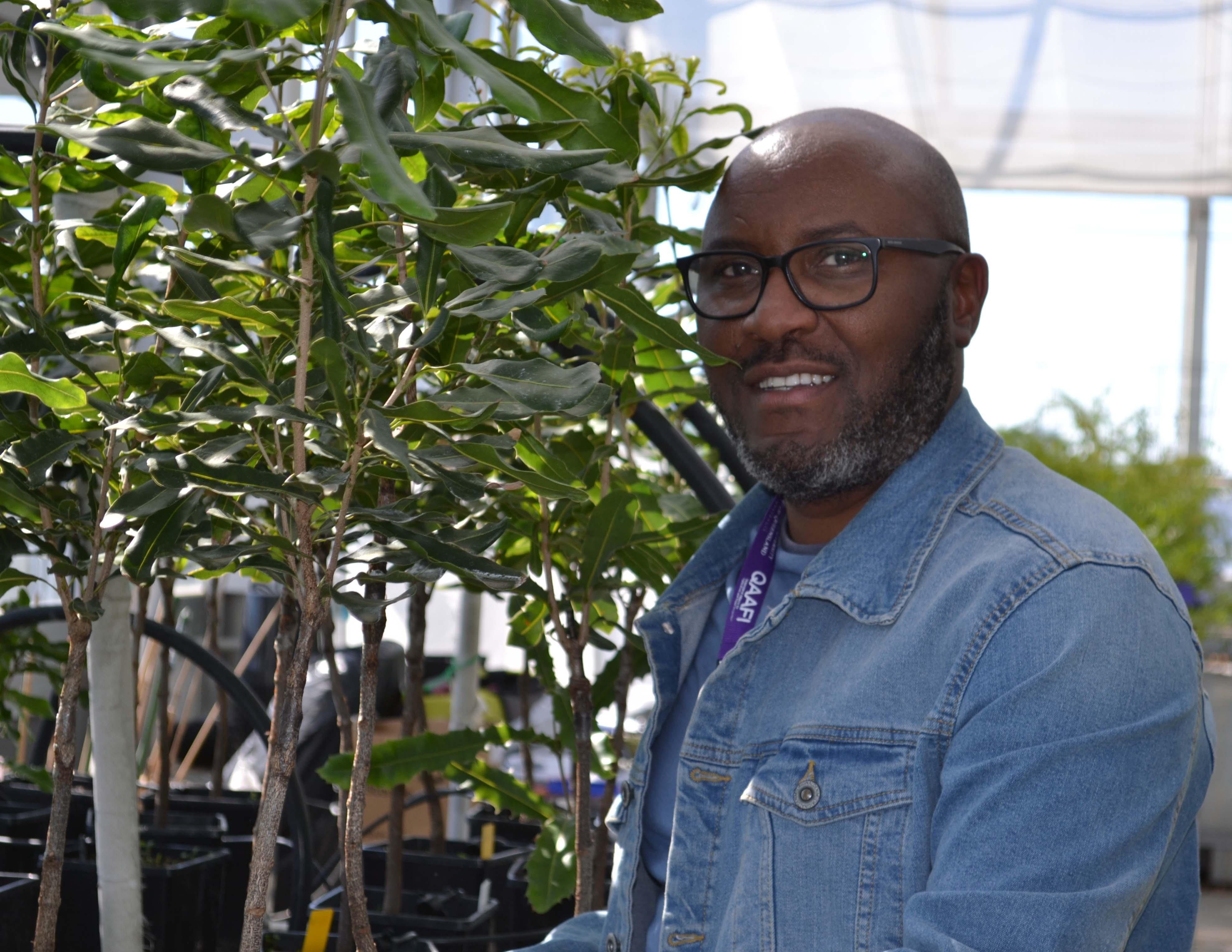
Husk spot disease is caused by a native pathogen called Pseudocercospora macadamiae that infects the fibrous husk around the macadamia shell, costing the industry around $10 million a year.
Associate Professor Femi Akinsanmi from the Queensland Alliance for Agriculture and Food Innovation (QAAFI) has led the research into husk spot disease for over a decade and discovered that using a mechanical tree shaker, prevented its spread, dramatically reducing reliance on fungicides.
Dr Akinsanmi identified that the fungus spread from old tree husks to new green ones.
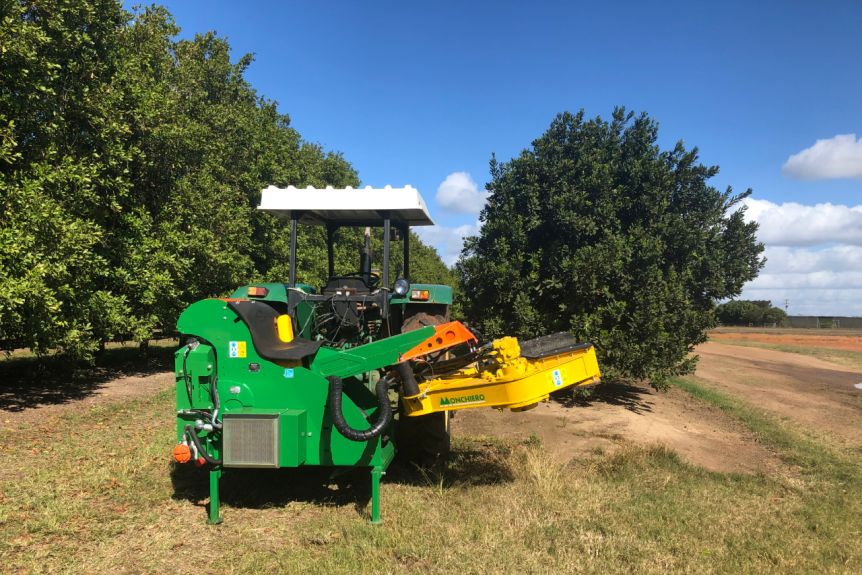
Shaking it up
By shaking the old husks from the trees, growers could remove the source of infection.
The mechanical tree shaking proved so successful in trials, it eliminated the need for chemical sprays to treat husk spot disease.
"It's what we call integrated management. When we started, it used to be about five or six [fungicide] applications a year — now it is down to one or none," Dr Akinsanmi said.
"In the next few years, we suspect that many growers will be using it [mechanical tree shakers].
"In Bundaberg, many of the larger growers are already using it every year, so they don't have to worry about the disease again."
Macadamia nuts are harvested from the orchard floor and shaking the trees has also shortened the harvest season and improved efficiency.
Dr Akinsanmi said the tree shakers did not harm the sensitive surface roots of the macadamia trees.
Smaller growers had the option of hiring contractors to do the work.
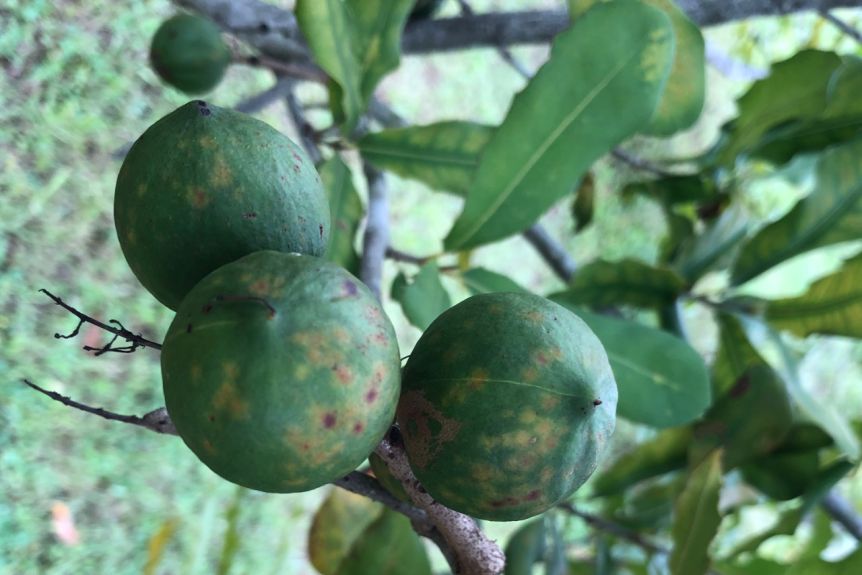
Industry grateful
Australian Macadamia Society chief executive Jolyon Burnett said the research from QAAFI had given growers the knowledge and confidence to apply flexible and holistic farm management practices and respond to issues as needed rather than following a set 'recipe' approach.
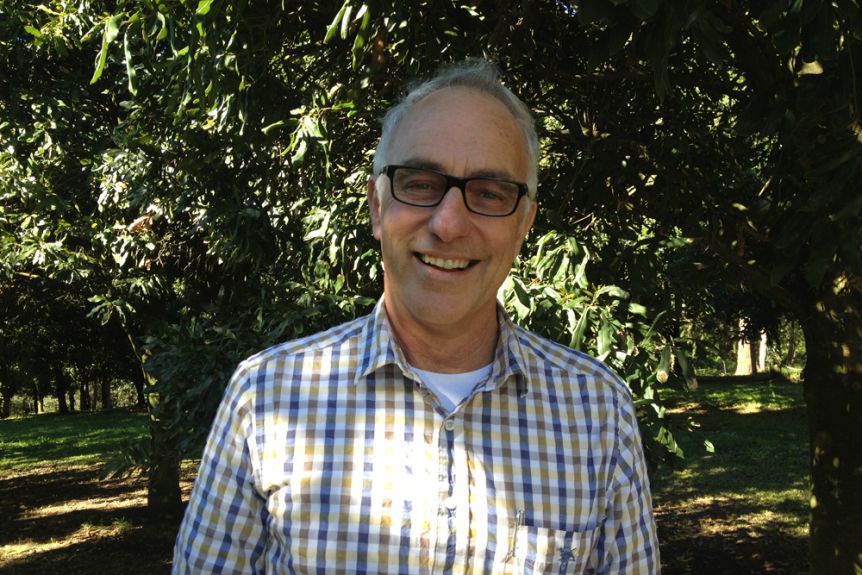
"What Femi has done has made us all better farm managers across the board, not just in relation to our broader industry-funded project on integrated pest and disease management," Mr Burnett said.
"It's a critical shift that has saved money and improved sustainability and responsible practices in the communities we operate in."
Dr Akinsanmi said dry weather reduced the risk of husk spot disease and growers who were unable to remove the old husks from the trees needed to self-assess their risk at the beginning of the season and apply fungicides where needed.
"It's the only place in the world that we have this pathogen, so we are taking the lead on everything to understand how to detect it, the biology of the pathogen, the ecology of the pathogen, everything about it," Dr Akinsanmi said.
"It's been a very interesting journey."
Contact: Associate Professor Femi Akinsanmi, Principal Research Fellow, Centre for Horticultural Science, Queensland Alliance for Agriculture and Food Innovation, The University of Queensland, T. +61 7 344 32453, M: 0401 583 775 or E. o.akinsanmi@uq.edu.au or Carolyn Martin, QAAFI Communications, M: 0439 399 886, E: carolyn.martin@uq.edu.au
High-resolution photos click here to download
The Queensland Alliance for Agriculture and Food Innovation is a research institute at The University of Queensland, established with and supported by the Queensland Department of Primary Industries.


